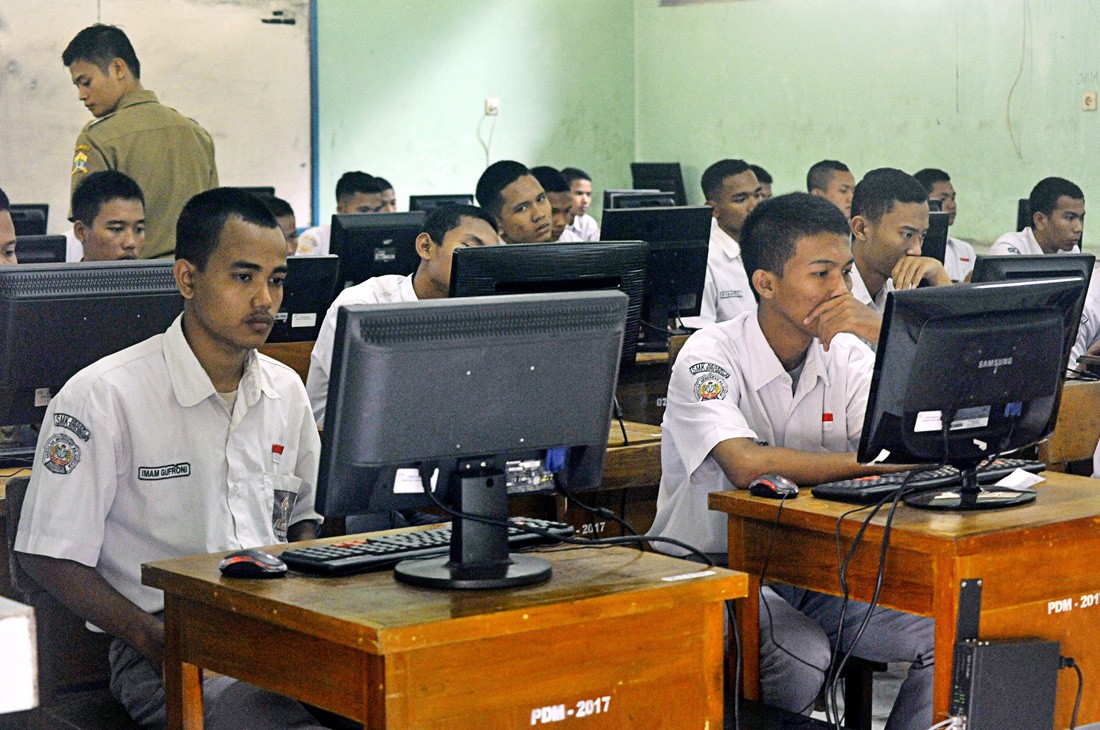Popular Reads
Top Results
Can't find what you're looking for?
View all search resultsPopular Reads
Top Results
Can't find what you're looking for?
View all search resultsA nation unlearned
Failure to immediately address chronic problems in education risks Indonesia sliding further back in human development growth.
Change text size
Gift Premium Articles
to Anyone
H
uman development is the highest mountain to climb for a country to become an advanced economy. Education and Culture Minister Nadiem Makarim has announced reforms called Merdeka Belajar (Freedom to Learn) which includes reducing teachers' administrative burden.
In welcoming the plan, teachers expressed hope that the new policy should really enable them to effectively do their jobs creatively. Among numerous areas needing breakthrough changes are our students’ basic skills.
The results of the latest triennial Program for International Student Assessment (PISA) survey, run by the Organization for Economic Cooperation and Development, show that Indonesian students’ abilities in mathematics, reading and science are even worse than in previous surveys. Indonesia now ranks among the bottom 10 of 79 nations observed.
The lack of basic learning abilities is clearly a major hurdle to President Joko “Jokowi” Widodo’s vision to make Indonesia a developed nation by 2045, when we celebrate our centennial. How can we excel in the digital economy if our youth still have serious learning problems?
The alarming results are consistent with other studies on Indonesia’s human development that show our education system has yet to produce quality human resources despite improved access.
An earlier World Bank study revealed that 35 percent of Indonesian children were unable to read and understand a simple story by age 10. The high rate of this inability — defined by the World Bank as “learning poverty” — usually indicates that a school system is not properly organized to help children acquire fundamental skills. Without foundational learning, students often fail to thrive later in school or when they join the workforce.
Despite being charted as a country of “high” human development, the United Nations' Human Development Report this year shows that Indonesia ranks 111th out of 189 countries, equal to Samoa. Southeast Asia’s “giant” is behind Malaysia, Thailand and the Philippines.
The report recoded decreasing growth of Indonesia’s Human Development Index (HDI) in the past decade. The HDI score grew at 0.74 percent annually between 2010 and 2018, decreasing from 1.4 percent annually during period of 1990 to 2000.
As the PISA and World Bank studies found the reading ability among the students at a critical point, this can be the first step to reform the education system. And this is clearly not only a problem about access to books or teaching them to read. What is more important is increasing students’ ability to understand and to develop critical thinking.
The studies suggest that the students lack comprehension ability because of minimal assistance from teachers, but wrong teaching methods and approaches may have also contributed to the problem. It may be as simple as encouraging students to have questions and doubts about each topic they learn, instead of increasing topics they must study.
Failure to immediately address chronic problems in education risks Indonesia sliding further back in human development growth.










